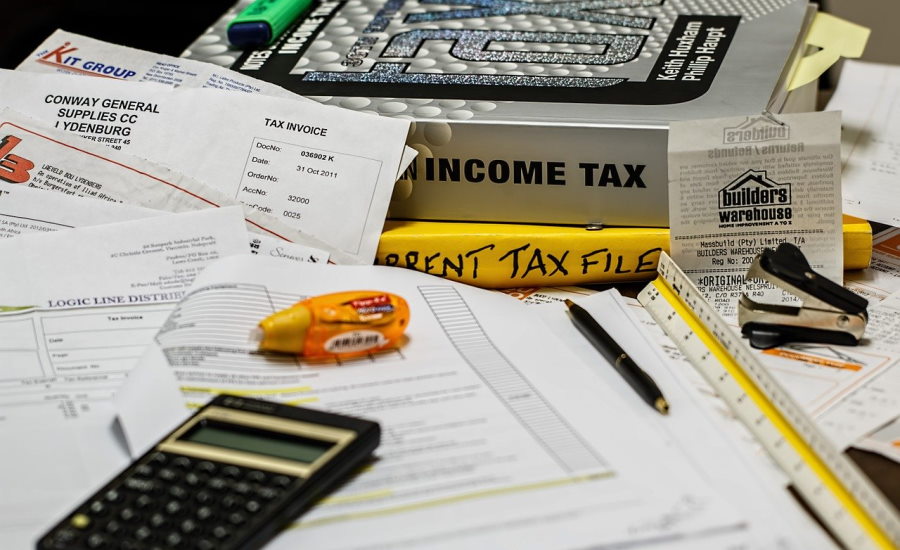Debt Cancellation for Roofing Contractors During COVID-19

As the COVID-19 pandemic continues to have drastic effects on our economy, many roofing contractors are looking to take advantage of newly enacted government initiatives such as the Paycheck Protection Program, the Economic Injury Disaster Loan Emergency Advance, and the expansion of other Small Business Administration lending programs just to stay afloat. However, companies must be aware of the tax implications of applying and accepting benefits of many of these government programs.
This article will focus on the important issue of debt cancellation, and how debts canceled during the pandemic could affect your company’s tax exposure.
General: Debt Cancellation as Taxable Income
Generally, debt that is voluntarily discharged or canceled by a creditor is considered taxable income for the debtor. In other words, if a creditor decides to forgive the remaining balance on debt, the debtor must report the amount that it is no longer obligated to pay as taxable income for that year.
If the debt cancelled is more than $600, and the creditor is an organization whose “significant trade or business is the lending of money” (which includes banks, trust companies, financial entities and credit unions), the creditor is required to issue the debtor a Form 1099-C, which the debtor must then submit to the IRS as evidence of the canceled debt. Debtors who do not receive a Form 1099-C from their creditor may still be obligated to file one, but only if an “identifiable event” occurs. The IRS defines “identifiable event” as: discharge of debt in bankruptcy or foreclosure, expiration of the statute of limitations for collecting on a debt, an agreement by the debtor and creditor to discharge the debt, voluntary discontinuation of collection activity by the creditor, or an expiration of a 36-month period in which no payment has been received.
In recent years, U.S. courts have been forced to grapple with situations where creditors continue collection efforts after the debtor files a Form 1099-C. The general rule in these situations is that the mere filing of a Form 1099-C by a debtor will not, by itself, constitute evidence of a discharged or cancelled debt. However, a recent decision by a U.S. Bankruptcy Court in Iowa suggests that a debtor who reports a cancellation of debt in a proper Form 1099-C and subsequently pays the applicable taxes for such debt, may create a legally binding cancellation of debt for which the creditor can no longer attempt to collect.
It should be noted that this precedent has not been accepted by all U.S. courts, and debtors who are wary of the status of a debt should contact an attorney to survey their options.
Debt Cancellation in the Wake of COVID-19
Debt forgiveness is the primary driving force behind many of the federal government’s recently enacted initiatives to help struggling businesses combat the economic effects of COVID-19. This begs the question of whether debts forgiven as part of these federal stimulus programs are considered “canceled” for purposes of the debt cancellation regulations, and whether companies who abide by the conditions for receiving loan forgiveness are obligated to report those amounts as taxable income.
Luckily, the Paycheck Protection Program, Section 1105 of the CARES Act, explicitly provides that “[c]anceled indebtedness under this section shall be excluded from gross income for purposes of the Internal Revenue Code of 1986.” Keep in mind that this exclusion only applies to companies who comply with the statutory requirements for loan forgiveness under the Paycheck Protection Program. The IRS and the Secretary of Treasury have yet to provide guidance as to the applicability of this section to debts incurred in other programs introduced under the CARES Act. Whether the IRS plans on relaxing debt cancellation regulations during the COVID-19 outbreak also remains to be seen.
At a time when businesses are looking for any relief they can get, it is important to understand that this relief may have negative tax implications. A creditor’s offer to cancel a debt in the short term could affect your company’s long-term tax exposure. It is strongly advised to consult a tax attorney before entering into agreements with creditors to reduce or limit your debt.
Cotney Construction Law is an advocate for the roofing industry and serves as General Counsel for NRCA, FRSA, NWIR, RT3, TARC, WSRCA and several other roofing associations. For more information, visit www.cotneycl.com.
Disclaimer: The information contained in this article is for general educational information only. This information does not constitute legal advice, is not intended to constitute legal advice, nor should it be relied upon as legal advice for your specific factual pattern or situation.
Looking for a reprint of this article?
From high-res PDFs to custom plaques, order your copy today!






